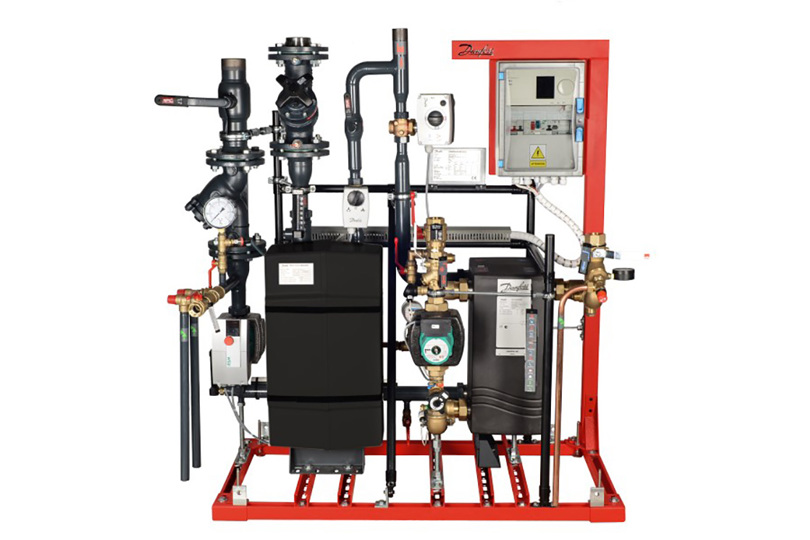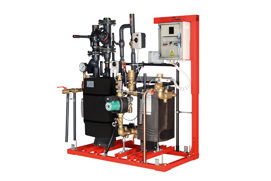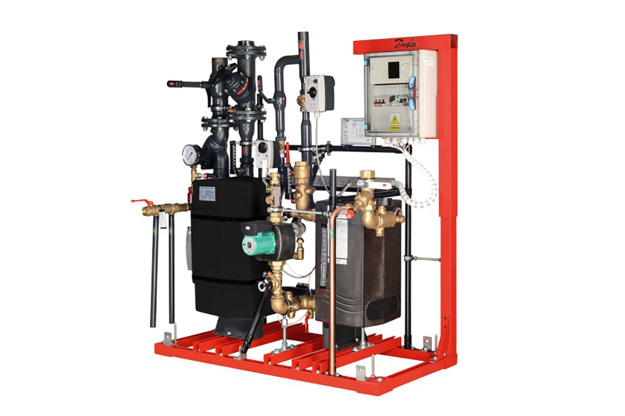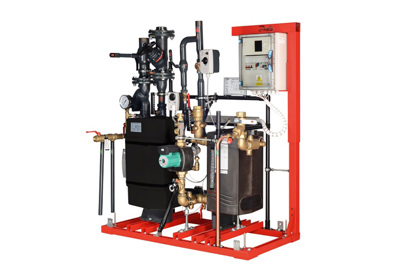District heating and cooling networks range in size from micro-networks supplied by biomass and other renewable energy sources to large-scale district heating networks.
Larger systems typically use waste heat from combined heat and power production, waste incineration or heat recovery from industrial processes. District heating systems can also be supplied with steam, subject to meeting the relevant technical and safety regulations.
Our wide experience in designing and installing district heating systems ensures that your solution will meet all applicable conditions. From the energy supplier’s technical criteria and the requirements of the operator, building owner or user, right through to safety, energy efficiency, installation and ease of use.
Features and benefits
Comprehensive range of substations from a single supplier
Integrated components ensure safe operation, increases durability and minimize whole life costs
Benefit from optimized heat transfer and system control performance

DSE Flex: Flexible substation design
DSE Flex is floor mounted, has a light profile, compact size and is designed for fast and safe transportation. It is suitable for heating of multifamily houses, commercial and industrial buildings.
Product range
-
if (isSmallPicture) {


 Indirect heating and domestic hot water
Indirect heating and domestic hot waterA substation for indirect heating has a heat exchanger separating the primary flow from the secondary flow. Indirect substations are recommended for PN16-networks and higher pressure classes.
-
if (isSmallPicture) {


 Indirect heating
Indirect heatingA substation for indirect heating has a heat exchanger separating the primary flow from the secondary flow. Indirect substations are recommended for PN16-networks and higher pressure classes. Substations in this category are normally supplied with connection pipes for a domestic hot water cylinder on the primary side for the fitted constructions, and on the secondary side for the welded constructions.
-
if (isSmallPicture) {


 DSE Flex
DSE FlexDSE FLEX is a compact substation platform designed for indirect district heating with up to 3 circuits with possibility to make combinations between modules if more circuits are required.










